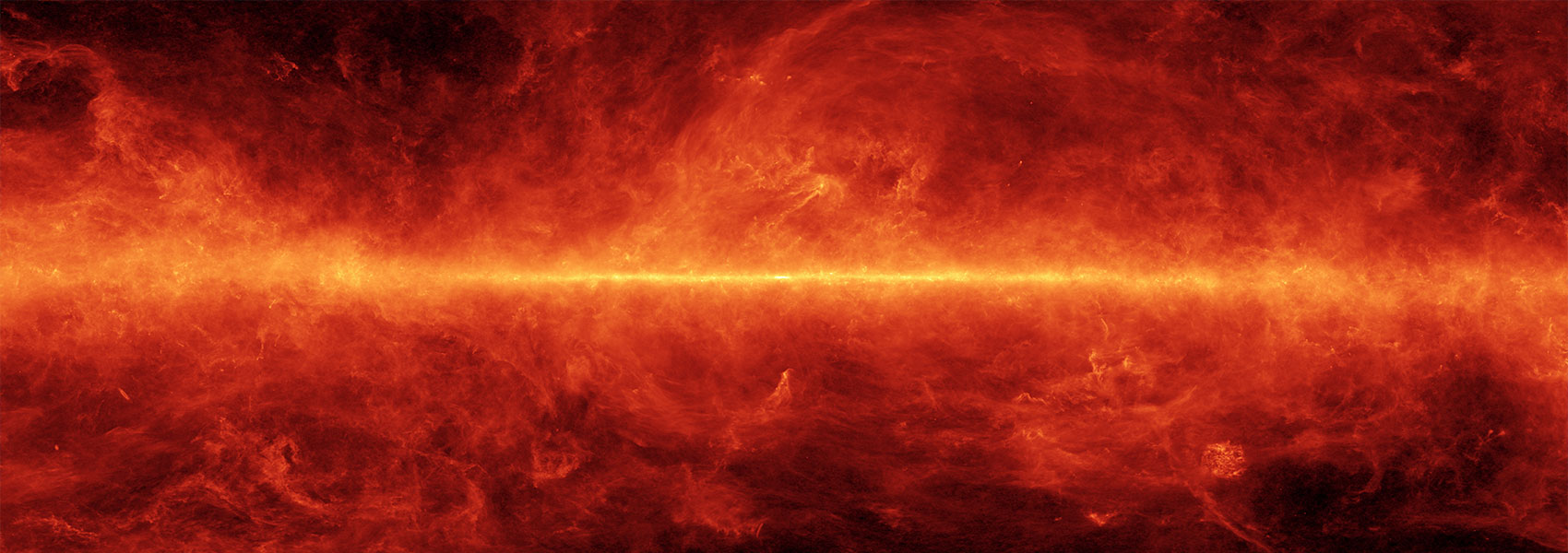NASA has selected 24 new Fellows for its prestigious NASA Hubble Fellowship Program (NHFP). The program enables outstanding postdoctoral scientists to pursue independent research in any area of NASA Astrophysics, using theory, observation, experimentation, or instrument development. Each fellowship provides the awardee up to three years of support.
The new NHFP preserves the legacy of NASA's previous postdoctoral fellowship programs, the Hubble, Einstein and Sagan Fellowships. Once selected, fellows are named to one of three sub-categories corresponding to three broad scientific questions NASA has sought to answer about the universe:
-
How does the universe work? — Einstein Fellows
-
How did we get here? — Hubble Fellows
-
Are we alone? — Sagan Fellows
The NHFP is one of the highlights of NASA's pursuit of excellence in space science.
“The NASA Hubble Fellowship Program selects some of the best new scientists and provides opportunities for them to excel in the field of astrophysics,” said Paul Hertz, Astrophysics Division Director at NASA Headquarters, Washington, D.C. “Their discoveries will advance our understanding of the cosmos and bring us closer to solving the mysteries of the universe.”
The newly selected NHFP Fellows will begin their programs in the fall of 2018 at a host university or research center of their choosing in the United States. The list below provides the names of the 2018 awardees, their host institutions, and their proposed research topics:
Sagan Fellows
-
Ian Czekala, University of California-Berkeley, A Uniform Measurement of Pre-Main Sequence Stellar Masses and System Architectures Using Protoplanetary Disks
-
Johan Mazoyer, Jet Propulsion Laboratory, Can We Detect Exo-Earths with Future Large Space-Based Coronagraphic Instruments?
-
Erik Petigura, California Institute of Technology, The Origin of Small Planets
-
Kamber Schwarz, University of Arizona, The Evolution of Volatile Molecules from Protoplanetary Disks to Exoplanet Atmospheres
-
Daniel Tamayo, Princeton University, A Million-Fold Speedup in the Dynamical Characterization of Exoplanet Systems
Einstein Fellows
-
Kate Alexander, Northwestern University, Quantifying the Diversity of Relativistic Transients with Radio Observations
-
Benedikt Diemer, Harvard University, Mapping the True Boundary of Dark Matter Halos with the Splashback Radius
-
Ke Fang, Stanford University, The Highest-energy Electromagnetic Counterparts to Neutron Star Mergers
-
Maximiliano Isi, Massachusetts Institute of Technology, Fundamental Physics in the Era of Gravitational Wave Astronomy
-
Ben Margalit, University of California-Berkeley, Interpreting the Diverse Transient Sky
-
Aaron Smith, Massachusetts Institute of Technology, Radiation Signatures of the First Galaxies and Supermassive Black Holes
-
Vladimir Zhdankin, Princeton University, First-Principles Modeling of Astrophysical Turbulence in Collisionless, Nonthermal Plasmas
Hubble Fellows
-
Philip Cowperthwaite, Carnegie Observatories, Driving the Growth of Joint Gravitational Wave and Electromagnetic Astronomy
-
Daniel Goldstein, Jet Propulsion Laboratory, Putting a New Generation of Strongly Lensed Supernovae to Work
-
Max Gronke, University of California-Santa Barbara, Casting (Lyman-Alpha) Light on Galaxy Formation
-
Melodie Kao, Arizona State University, How Do Substellar Objects Generate Magnetic Fields?
-
Charlotte Mason, Smithsonian Astrophysical Observatory, Revolutionizing Reionization with JWST
-
Aaron Meisner, California Institute of Technology, Revealing the Sun's Coolest, Nearest Neighbors with NEOWISE-Reactivation
-
Erica Nelson, Harvard University, The Emergence of Galactic Structure
-
Anna Schauer, University of Texas-Austin, Minihaloes: Formation Sites of the First Stars and the Onset of Reionization
-
Irene Shivaei, University of Arizona, Unveiling the Obscured Early Universe in the JWST Era
-
Tuguldur Sukhbold, The Ohio State University, Core-Collapse Supernovae Across Metallicities and Engines
-
Jamie Tayar, University of Hawaii-Institute for Astronomy, Subgiants: Models, Rotation, Convection, and Planets
-
Yuan-Sen Ting, Institute for Advanced Study, Chemically Tagging the Milky Way
More than 500 of the world’s prominent and active scientists in astrophysics have been supported in their early careers since NASA began the fellowship program in 1990 with the creation of the original Hubble Fellowship. The Space Telescope Science Institute (STScI) administers the NHFP on behalf of NASA, in collaboration with the NASA Exoplanet Science Institute (NExScI) at the California Institute of Technology in Pasadena, California, and the Chandra X-ray Center (CXC) at the Smithsonian Astrophysical Observatory in Cambridge, Massachusetts.
An important part of the NHFP are the Symposia, which allow fellows the opportunity to present results of their research, and to meet each other and the scientific and administrative staff who manage the program.
The NASA Exoplanet Science Institute, which is operated at the California Institute of Technology (Caltech) in coordination with the Jet Propulsion Laboratory, administers the Sagan Fellowship program for NASA.
The Chandra X-ray Center administers the Einstein Fellowship program for NASA. NASA's Marshall Space Flight Center in Huntsville, Alabama, manages the Chandra program for NASA's Science Mission Directorate in Washington, D.C. The Smithsonian Astrophysical Observatory controls Chandra's science and flight operations.
STScI administers the Hubble Fellowship program for NASA. STScI is the science operations center for the Hubble Space Telescope and the science and mission operations center for the James Webb Space Telescope, scheduled for launch in 2020. STScI is operated for NASA by the Association of Universities for Research in Astronomy, in Washington, D.C.
For photos and more information about the 2018 NHFP Fellows and this program, visit https://nhfp.stsci.edu/nhfp-2018-fellows.




